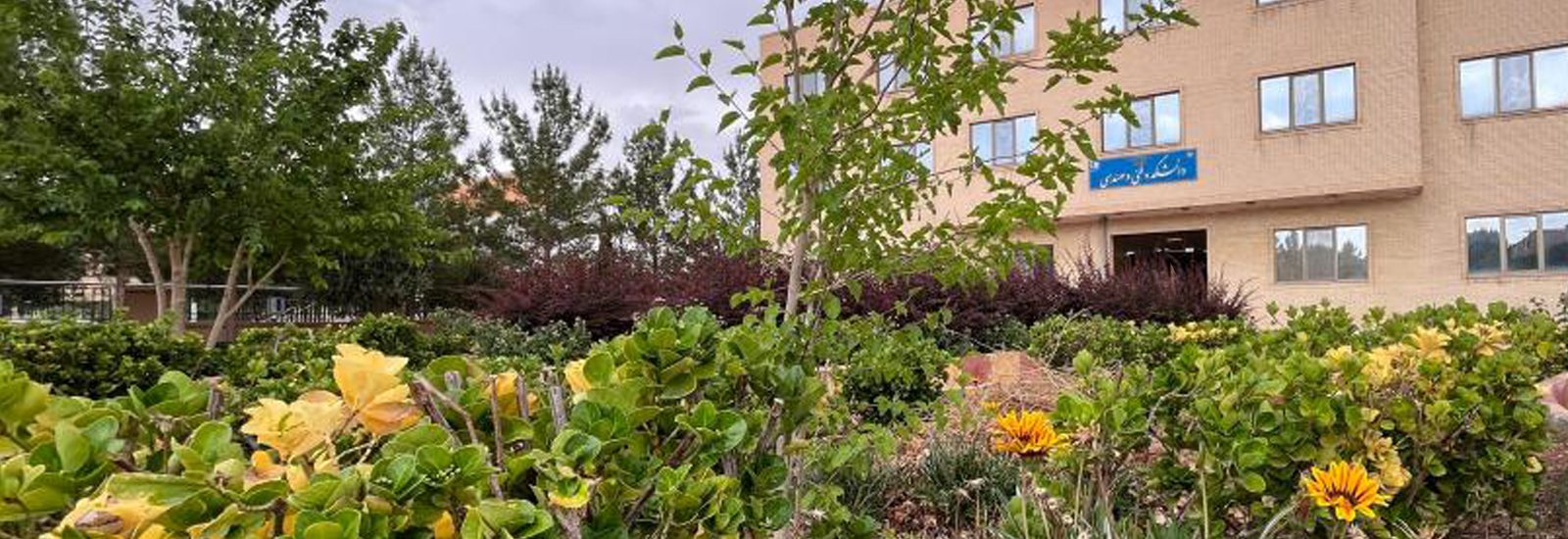Introduction - دانشکده فنی و مهندسی

Introduction
Introduction to the Faculty of Engineering
The Faculty of Engineering at Ardakan University started its activities in 2011 to train skilled and competent professionals in various engineering disciplines. Currently, a wide range of students are pursuing their studies in programs such as Mechanical Engineering, Industrial Engineering, Civil Engineering, Computer Engineering, Chemical Engineering, Electrical Engineering, and Engineering Science. Each of these departments, through comprehensive educational programs and advanced research initiatives, enables students to become familiar with the latest technologies and modern scientific methods.
The mission of the faculty is to deliver targeted educational, research, technological, and social services in the following areas:
-
Training of faithful, committed, specialized, and entrepreneurial human resources
-
Meeting the knowledge, research, and skill needs required by the community
-
Playing an effective role in policy-making and guidance within the engineering sector
-
Promoting scientific, technological, and social advancement in Ardakan
The faculty’s main research and technological capacities include:
-
The ability to establish and develop incubator centers
-
Provision of research services tailored to the developmental priorities of the region (industry, mining, solar energy, water, steel, ceramics, glass, etc.)
-
Delivering research and technological services aimed at the development and advancement of industry
The faculty’s main educational capacities include:
-
Offering skills development services and supplying specialized human resources for the country
-
Providing academic programs aligned with the demands of the country, region, and province
-
Having a dedicated, experienced, young, and highly qualified faculty
Main Capabilities of the Faculty of Engineering
-
Offering core and major engineering programs, including Electrical Engineering, Mechanical Engineering, Computer Engineering, Industrial Engineering, Civil Engineering, Chemical Engineering, and Engineering Science
-
High acceptance rates of the faculty’s graduates into postgraduate programs
-
The establishment of the Center for Industry-University Collaboration to identify industry challenges and address them through research proposals.
-
Participation of faculty members in specialized committees of local and provincial organizations and industries
-
Establishment of an Innovation and Incubation Center to enhance engagement in knowledge-based production and services within specialized fields
-
Availability of advanced laboratory equipment to provide necessary services to various industries
-
Faculty members with diverse applied expertise in fields such as telecommunications, energy management, machinery condition monitoring, optimization and project management, production, construction and civil engineering, road construction, refinery systems, design of fluid and HVAC systems, manufacturing, industrial automation, bioinformatics and data mining, creative thinking, and modern teaching methods
The university administration’s commitment to enhancing the quality of education—through the recruitment of experienced faculty, use of modern educational and research equipment, provision of well-equipped laboratories and workshops, and ensuring student welfare—alongside the university’s favorable geographic location and accessibility from many provinces, has led to a significant quantitative and qualitative improvement in the academic standing and performance of students in engineering disciplines in recent years.
Given the presence of numerous industrial plants in Ardakan County, the Faculty of Engineering has established extensive connections with local industries and research centers. These collaborations facilitate joint industrial and research projects, scientific visits, and the organization of training courses for students, as well as opportunities for internships and apprenticeships. Such connections not only enhance students’ practical experience and applied knowledge but also pave the way for future employment and professional success.
The approval of relevant regulations for scientific visits, the activities of the Entrepreneurship Center and university-industry relations, the organization of skills development courses such as the “Entrepreneurship Breeze” program, the strengthening of the Incubator Center for innovative units, and the announcement of calls for the recruitment of students and faculty in technical and engineering fields, the establishment of the TMC Center as an active technical and vocational education hub within the Faculty of Engineering, and the acceptance of industrial scholarship students—all attest to the commitment and efforts of the faculty’s staff.
Currently, the Faculty of Engineering has 36 faculty members, 742 students, and 946 graduates. The faculty first admitted master’s students in 2019 in Chemical Engineering with a specialization in Thermosynthetics and Catalysts. In recent years, master’s programs in other engineering disciplines have been added to the faculty’s offerings. At present, in addition to Chemical Engineering (with specializations in Thermosynthetics and Catalysts, and Separation Processes), the faculty offers master’s programs in Mechanical Engineering (Applied Design and Energy Conversion), Industrial Engineering (Production and Service Systems), Electrical Engineering (Power Systems), and Civil Engineering (Geotechnics).
With the support of experienced faculty and academic staff, the Faculty of Engineering at Ardakan University is committed to developing a new generation of engineers and specialists equipped with strong scientific and practical abilities to meet the growing needs of society and industry. To this end, the faculty continuously strives to provide a dynamic, creative, and inspiring environment for its students.
